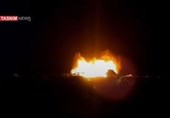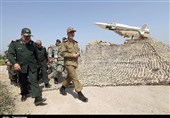Iran’s Negotiator Predicts Tough Decisions for Ministers in Geneva
TEHRAN (Tasnim) – Iranian deputy foreign minister and one of the country’s chief nuclear negotiators said the 4th day of negotiations in Geneva is tough, and stressed that parties from the group of six major world countries should be ready for taking tough decisions.
According to Tasnim dispatches, Seyed Abbas Araqchi told reporters in Geneva that the fourth day of talks between Iran and the Group 5+1 (also known as P5+1 or E3+3) in Geneva is “tough and arduous”.
As regards the presence of top diplomats from the six major powers at the venue of talks, Araqchi said, “Ministers have arrived (in Geneva) and we hope they are ready for hard decisions.”
US Secretary of State John Kerry who arrived in Geneva in the morning "to help narrow the differences and move closer to an agreement" held a trilateral meeting with Iran's Foreign Minister Mohammad Javad Zarif and EU foreign policy chief Catherine Ashton.
Over the past three days, Zarif and Ashton have held several sessions of meetings with the aim of reaching an agreement to help end the 10-year standoff over Iran’s peaceful nuclear activities.
The talks had been initially scheduled to conclude on Friday, but were extended amid hopes of a possible final accord, prompting the G5+1 foreign ministers to announce their attendance in person.
The United States and its western allies have suggested they are ready to ease some sanctions in return for a first-step deal that starts to put limits on Iran's nuclear program, but they insist that the stringent sanctions that have targeted Iran's oil and financial sectors are to remain intact in the first stage that is going to last six months.
They say Iran would get modest but "reversible" sanctions relief, including access to several billion dollars in oil revenues and easing trade restrictions on precious metals and aircraft parts.
From what diplomats from both sides of the table have told reporters, it seems a deal that is acceptable to both sides is close at hand.
Iran insists it is entitled to enrich uranium for peaceful purposes, as it is a signatory to the Non-Proliferation Treaty. Diplomats indicated a compromise that would recognize this right internationally may be within reach.
The presence of foreign ministers can give an impetus to the talks, but it can in no way guarantee an agreement, diplomatic sources said. The Geneva meeting follows a previous round of talks earlier this month. On that occasion, too, foreign ministers flew to Geneva to seal an interim deal, but disagreement between the G5+1 prevented them from signing one.






